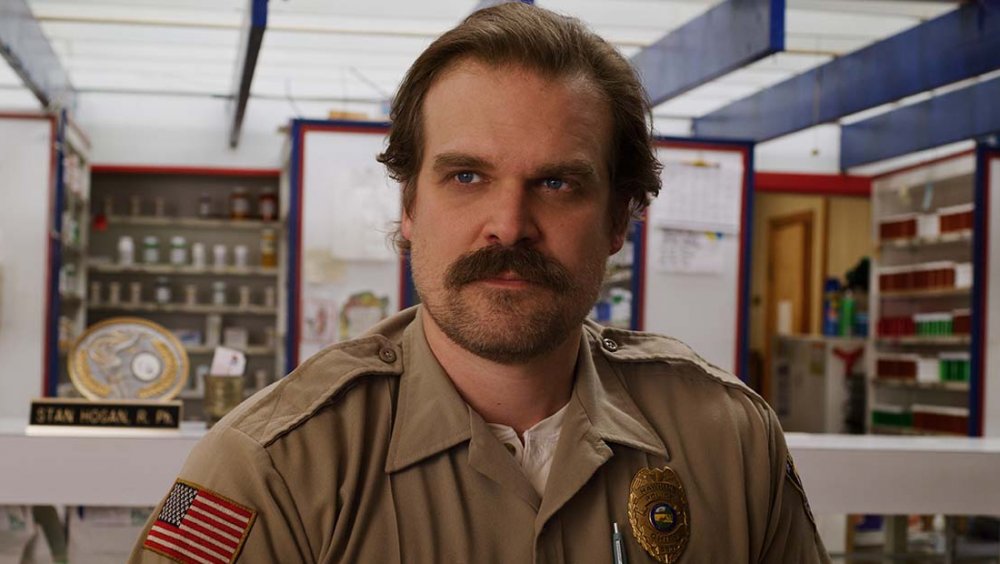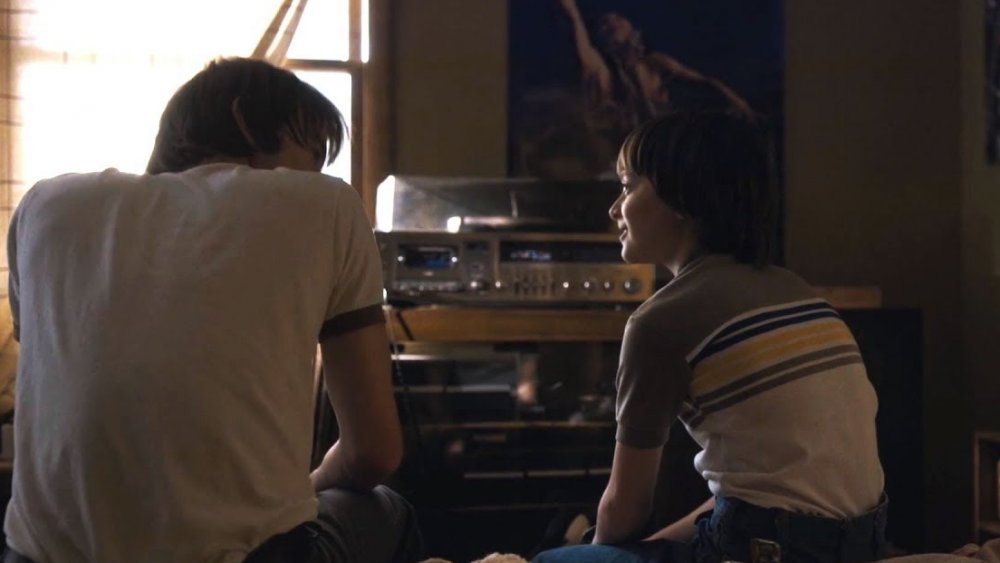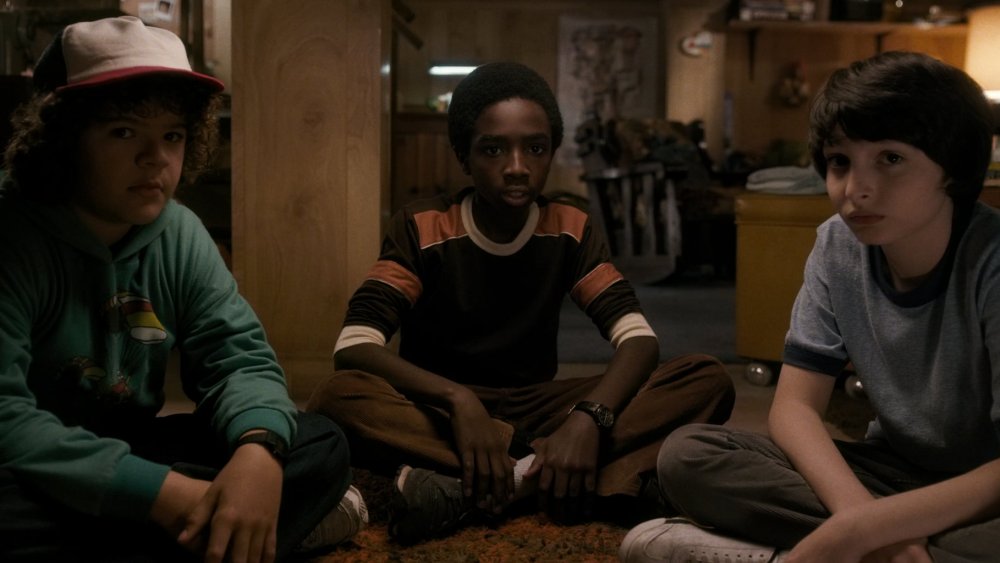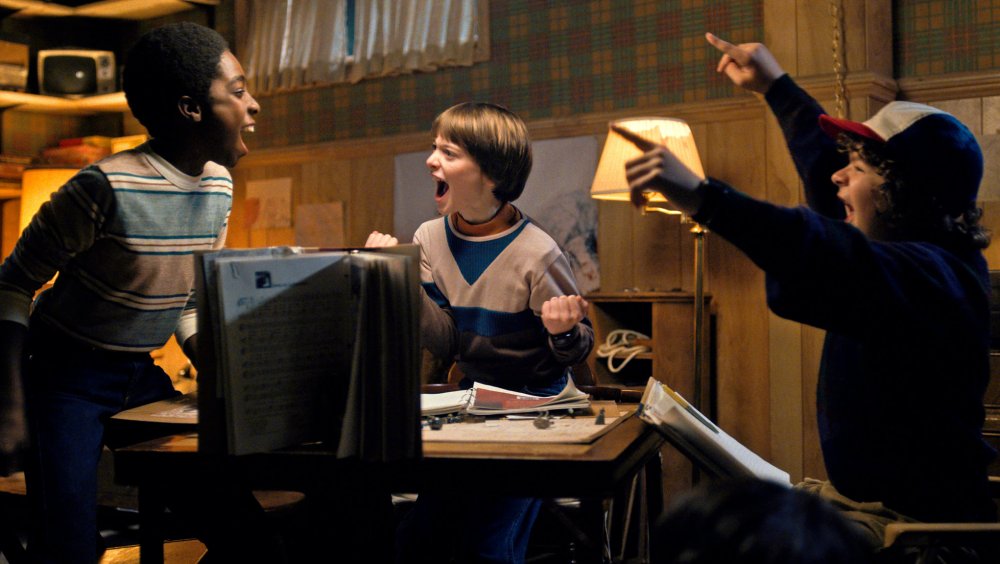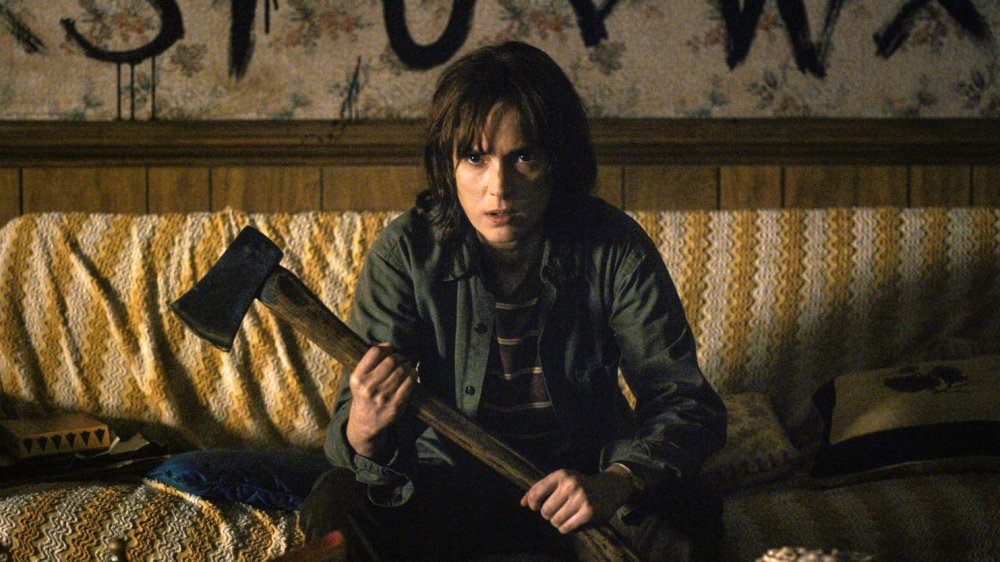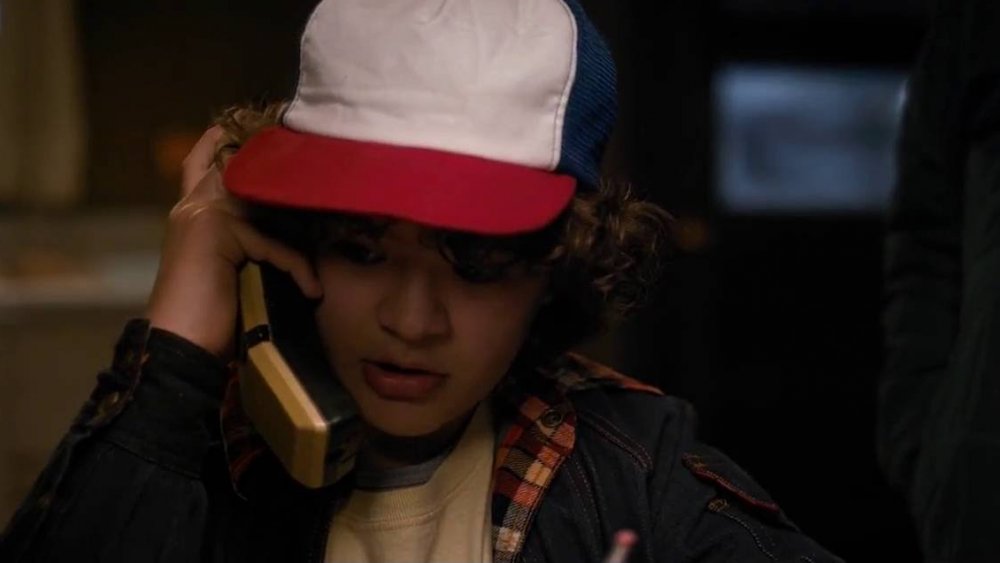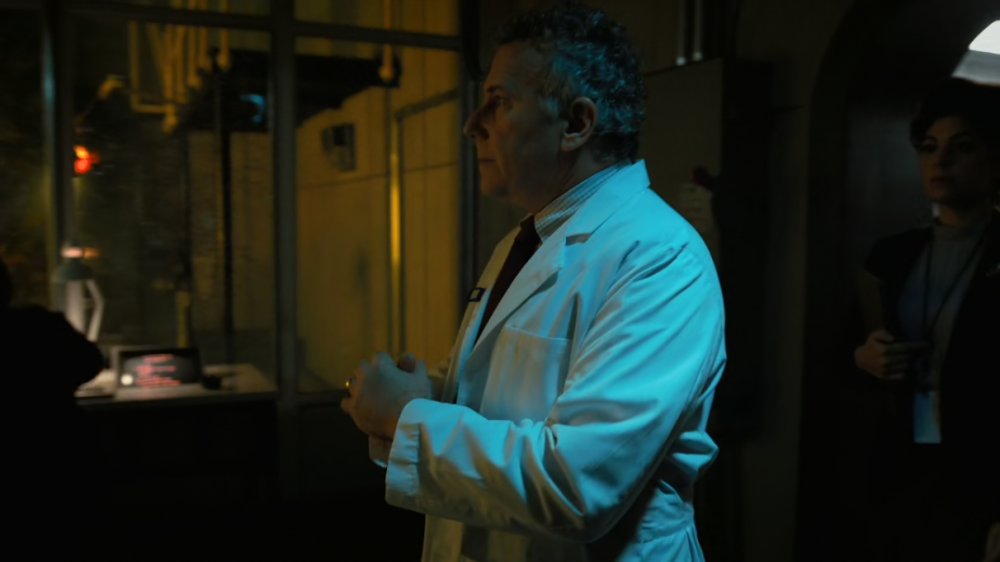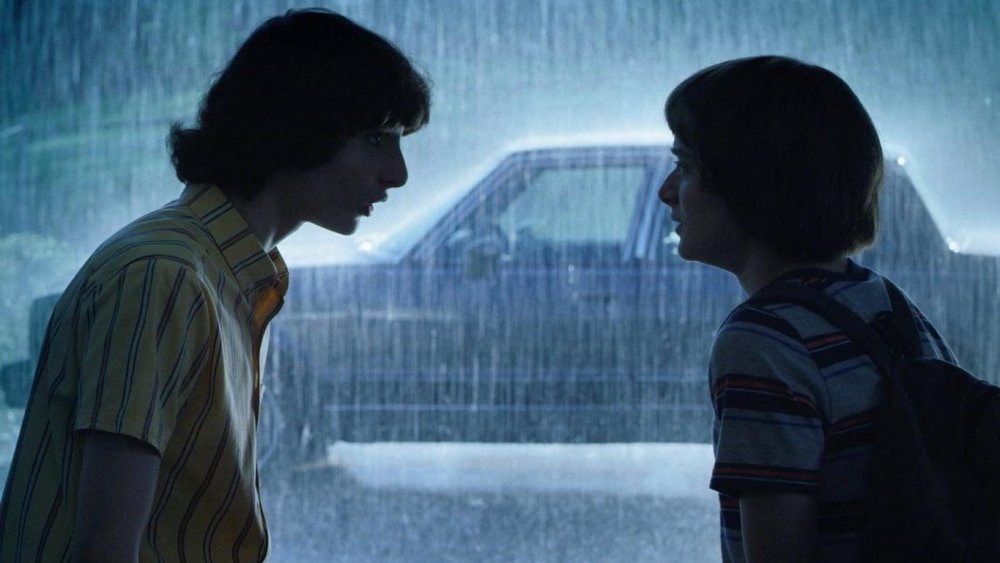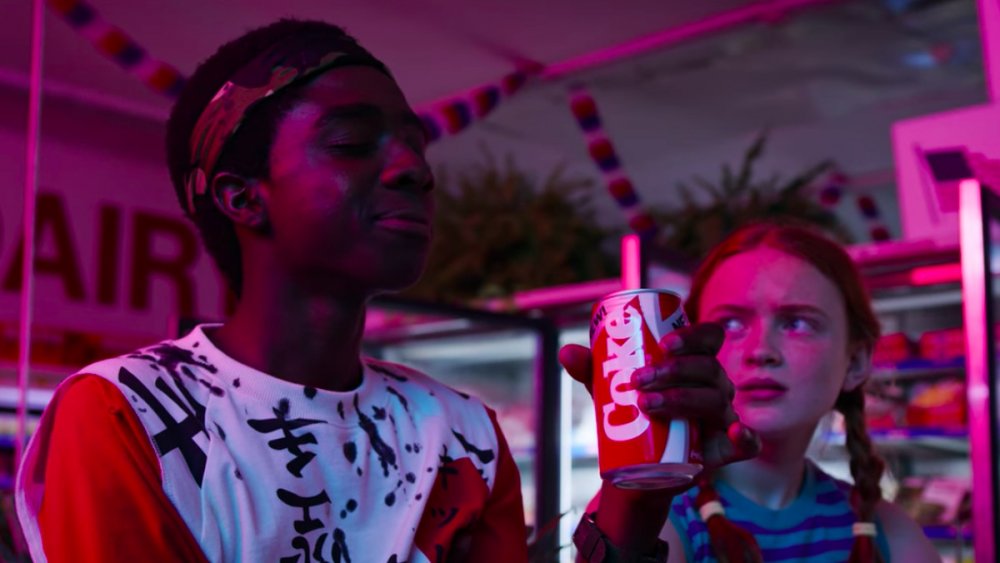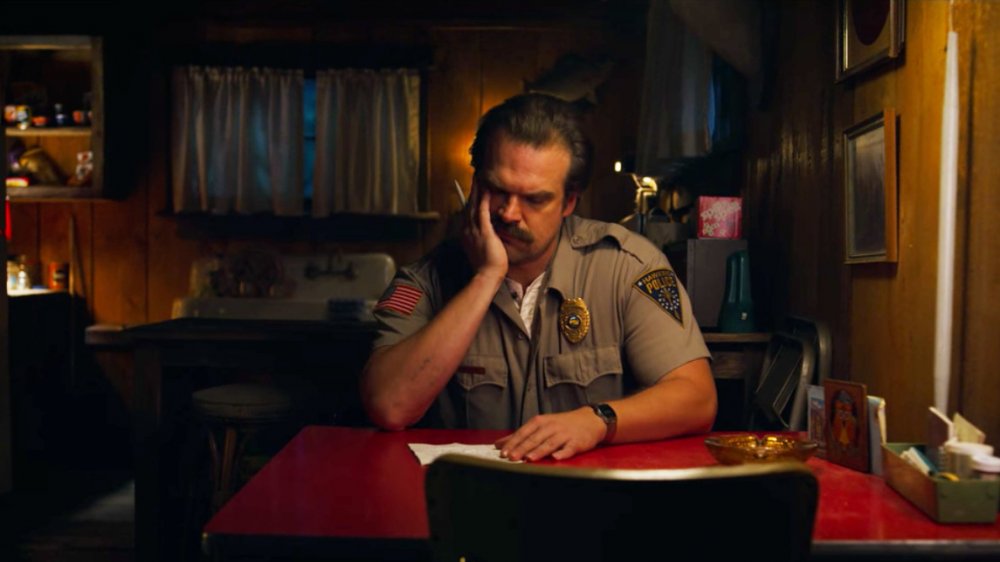Lines In Stranger Things That Mean More Than You Realize
Over the course of three seasons and counting, Netflix's original series Stranger Things has become one of the most popular shows in the world, and it's easy to see why. The series has a whole lot going for it, as it's a mash-up of various elements of 1980s pop culture, using old tropes to build a new narrative. Plus, the show features compelling horror, solid pacing, loads of humor, and a terrific ensemble cast that really makes it all work. It's a show you watch because you fall in love with the characters and care about them when danger arrives, but hey, what's a great character without memorable dialogue?
Stranger Things is one of the most meme'd shows of the 2010s thanks to countless unforgettable lines, ranging from hilarious jokes to stray comments about pop culture to some genuinely tear-jerking sentiments. Its dialogue is so memorable, in fact, that certain key quotes become objects of fascination, with fans turning them over and over in their hands, searching for multiple meanings. And that's what we're here to talk about — those memorable lines that have something profound lurking under the surface. From jokes that are about something more to genuinely touching moments of pure emotion, these are our favorite Stranger Things lines that mean more than you realize.
Jonathan's good advice sums up Stranger Things
The main characters of Stranger Things are often presented as outsiders — underdog heroes up against supernatural forces and people who view them as weirdos. For example, the show begins with the core quartet of boys, a group of nerds who love Dungeons & Dragons and are bullied for their interests. Then it expands to include Eleven with her telekinetic powers and strange worldview, Jonathan Byers and his sensitive, creative pursuits, Nancy Wheeler and her desire to break with the stereotypes the world tries to foist on her, Max Mayfield with her video arcade prowess and her skateboard, and so on.
This, naturally, creates a certain degree of tension in the series. The kids are frequently bullied, their interests are dismissed or even mocked by the adults in the room, and Eleven's behavior in the beginning is instantly treated like something to fear or avoid by many people in Hawkins. Very early on in the series, though, Jonathan Byers tells his little brother, Will, something that will be key to understanding the whole show.
"You shouldn't like things because people tell you you're supposed to."
In context, he's talking about Will's father forcing him to play baseball, but the statement also applies to virtually every major choice the characters make throughout the series. Stranger Things isn't about following a trend, at least not on a character level. It's about embracing your own path.
Dustin is always prepared
From almost the very beginning of the series, Dustin Henderson establishes himself as a kid who takes fiction so seriously that it bleeds over into how he views the real world. He sees himself as an adventurer on a quest, just like his D&D character, and he reacts accordingly. So, when he, Mike, and Lucas are about to head on a dangerous mission to go and help their friend, he packs food. When Mike and Lucas scoff at him, he responds, "We need energy for our travels!"
At first, it's a joke about how Dustin considers snacks more important than a lot of other things, but it pays off later in the series. It's Dustin who realizes that, after performing a massive psychic feat with her powers, Eleven will likely need to "recharge." So, he goes and hunts down a chocolate pudding stash in the school cafeteria. Dustin's plea for food as part of a magical quest also has broader implications for his character. He's the group's great planner, the one who's always thinking about the longer-term implications of whatever impulsive decision they're about to make, even if he's not always right.
Taking D&D seriously
The first thing we see the quartet of boys at the center of Stranger Things doing in the series is playing Dungeons & Dragons. They love it, and over the course of the show, we learn that they love it so much that it makes up a significant portion of their worldview. As the series goes on and real-life monsters begin to intrude on their fun, we also learn that the rest of the world should perhaps take their obsessions seriously.
As the situation in Hawkins gets more dangerous, the boys — Dustin, especially — keep referring back to their Dungeons & Dragons books to form a kind of pop cultural shorthand for what's happening, but when they try to explain this to the adults, they don't always get it. At one point, when Hopper dismisses their discussions as a "kids' game," Dustin replies, "It's a manual."
It plays as a joke, but Dustin actually means it. Throughout the series, the boys refer back to their D&D books for guidance, and while there's not always a one-to-one comparison between fiction and reality, they usually find something worth exploring and some new path forward. For the boys, the books are a reminder not that monsters are real, but that they can actually fight them and maybe even win.
Joyce's determination in Stranger Things has multiple meanings
Stranger Things is a show that relishes the way in which it smashes together the ordinary with the unbelievable, and that builds to some truly incredible character moments. Virtually every member of the core cast has had a scene where they've had to try to explain to another character that something fantastical is happening, only to end up being dismissed. This happens first, and perhaps most importantly, to Joyce Byers.
Early in season one, Joyce is a distraught single mother whose youngest son has vanished, which is hard enough. Then, she begins to receive messages from Will through the walls of her house, and when Will's "body" turns up, she's convinced it's a fake because she knows Will is trapped somewhere else. This, of course, all appears to the town like she's a woman driven mad by grief, who's so overwhelmed that she just refuses to accept her son's death. When her other son, Jonathan, tries to break this to her, she screams back, "I don't care if anyone believes me!"
This is an important moment, not just for Joyce but for the whole show. Stranger Things is a series about trusting in your own experience, refusing to discount the wisdom of children, and letting the outsiders of a small town have a voice. Joyce doesn't care if anyone believes her because, like so many other characters in the show, she has reason to believe herself.
Opening curiosity doors
The quartet of boys at the heart of Stranger Things are nerds in many ways, one of which is that they're teacher's pets to a guy named Mr. Clarke. Mr Clarke isn't just a very engaged teacher, but he's also a nerd himself, and so he's eager to have young minds follow in his path with a love of science and science fiction. Of course, the problem comes when the kids start to rely on him so much that they bug him with their science questions even when he's very much off the clock. Fortunately, they know exactly how to get him to answer.
Near the end of the first season, desperate for some scientific know-how, Dustin calls Mr. Clarke and asks for advice. When Mr. Clarke tries to put Dustin off, Dustin responds, "Why are you keeping this curiosity door locked?"
It's a joke, a play on one of Mr. Clarke's own pet phrases that he uses to encourage learning, but the line also leans into a lot of recurring themes in the series. Characters in Stranger Things are encouraged to express themselves and be open to learning but never too much or something dark might reach out and grab them. Curiosity doors, as Dustin knows all too well, can't always be closed again after you open them.
This season two line means more than you realize
The first season of Stranger Things establishes Hawkins Lab as a place to be feared, a place where unscrupulous scientists conduct harmful experiments with little regard for human life. In season two, the U.S. government attempts to remedy that by bringing in Sam Owens, a kindhearted scientist who claims he's honestly just there to clean up the mess from season one. Throughout the season, Sam seems mostly true to his word, helping Will with his recovery and even trying to close the gateway to the Upside Down. And along the way, he dispenses advice like, "All living organisms develop defense mechanisms against attack. They adapt. They find some way to survive."
In context, Sam is talking about the larger problem Hawkins is facing as the rot of the Upside Down keeps spreading, but even without that context, this quote speaks to the enduring spirit of the entire series. Our heroes are constantly adapting and finding ways to survive throughout the show, whether they're battling the Demogorgon, the Mind Flayer, or their own internal traumas. In the end, this might be one of the best summations of the show to come out of a character's mouth.
Mike's insight into Will
By the third season of Stranger Things, the four boys at the center of the story have all expanded their horizons and overcome a lot of obstacles. This means changes, so by the beginning of season three, three of the four of them are part of a couple. Mike is dating Eleven, Lucas is dating Max, and Dustin got a girlfriend named Suzie while he was away at camp. That leaves Will Byers as the lone single boy of the group, and he's not interested in dating. He just wants to plays Dungeons & Dragons with his friends, who are often less-than-into that idea. This all builds to a fight in which Mike snaps at his best friend, "It's not my fault you don't like girls!"
One way or another, this sentence carries a heavy meaning in the context of the series. On one level, it could simply be a reference to Will's enduring trauma. He's been through so much that he simply hasn't been able to grow the same way the other boys have, and so dating hasn't entered his brain. On another level, it could mean — as many fans have theorized — that Will doesn't like girls because he likes boys, instead. That might be true someday, but season three leaves the question open.
Lucas' review of New Coke is a comment on Stranger Things itself
One of the joys of Stranger Things for a lot of fans is the way in which the show packs countless references to 1980s pop culture into its story. Sometimes, they're just lurking in the background, but other times, they come to the forefront just for a moment, and it always makes for a memorable encounter. Near the end of season three, one such moment features Lucas popping the tab on a can of the infamous New Coke and enjoying several sips while his friends look on in disgust. When they ask how he can possibly enjoy the famously hated beverage, Lucas response:
"It's like Carpenter's The Thing. The original is the classic, no question about it, but the remake ... sweeter, bolder, better."
On the surface, this is just a joke about how no one liked New Coke, and history will prove Lucas wrong, but if you want to look deeper, it can also be viewed as a statement about the show itself. Much of the criticism lobbed at Stranger Things centers on its willingness to cater to nostalgia above all else, as though all the show is doing is remixing already beloved bits of the '80s. By riffing on the appeal of New Coke, Lucas is in some way countering these criticisms, arguing in favor of a new spin on a classic. Or, in the case of Stranger Things, a lot of different classics at once.
Hopper's parting words
One of the most emotional moments in all of Stranger Things arrives at the very end of the third season, when Jane "Eleven" Hopper prepares to leave Hawkins with the Byers family after the apparent death of her adoptive father, Jim Hopper. Before she goes, though, she finds a letter Hopper wrote to her, full of the things he'd always wanted to say to her in person but had never been able to. It's a scene packed with emotional moments, but a particularly resonant one comes when Hopper, in voice-over, says, "Make mistakes, learn from them, and when life hurts you, because it will, remember the hurt. The hurt is good. It means you're out of that cave."
In the moment, it plays like a father giving his daughter advice on getting through life, but it carries resonance far beyond their relationship. Every member of the Stranger Things ensemble has been through some kind of trauma, Hopper more than most, and in articulating those feelings, he's giving the rest of them permission to breathe a sigh of relief even though he's gone. Of course, it also signals that, thematically speaking, Hopper isn't really gone, and that his "death" was just some temporary pain before he gets out of the cave again.
